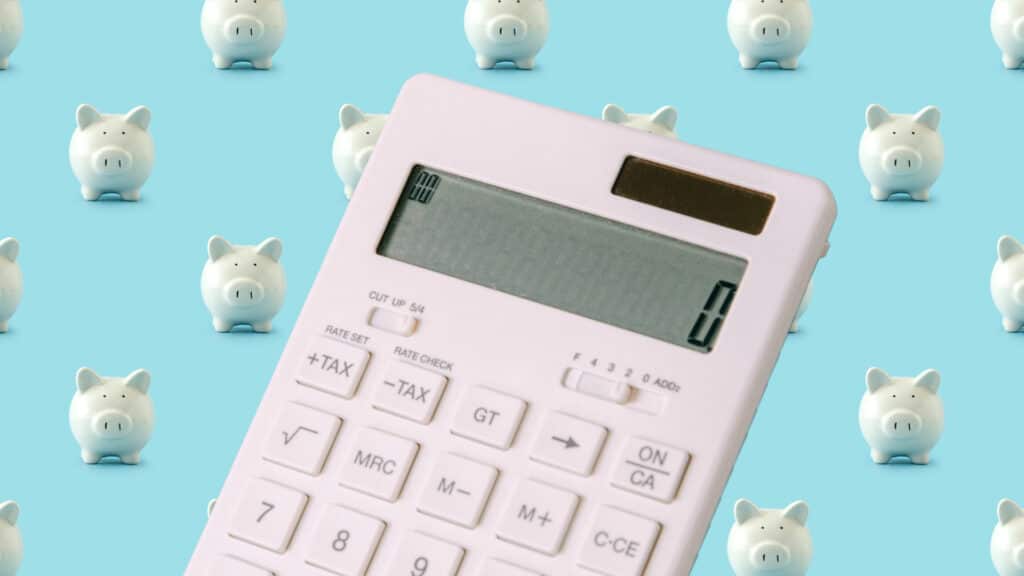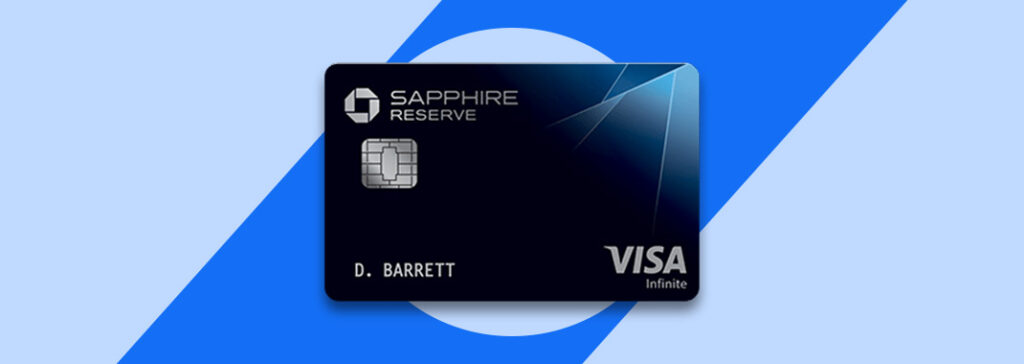Most products on this page are from partners who may compensate us. This may influence which products we write about and where and how they appear on the page. However, opinions expressed here are the author's alone, not those of any bank, credit card issuer, airline or hotel chain. This page may include information about American Express products currently unavailable on Slickdeals. American Express is not a partner of Slickdeals.
In recent years, personal loans are becoming a fast-growing form of consumer lending in the United States. While personal loans have become a convenient financing option due to their quick access to cash, they also have their fair share of risk for various reasons. Aside from potentially high interest rates and adding more debt for consumers, the possibility of personal loan fraud is also a problem. Personal loan fraud has risen by about 40% in the first half of 2021.
We'll break down a little more about personal loan scams and what to look out for before taking a personal loan.
What Is a Personal Loan Scam?

A personal loan scam is a loan offered under false pretenses with the intention of stealing money or personal information from potential borrowers. Often, the scammer draws the attention of their target by making attractive promises they can’t deliver on.
The main goal of personal loans scams is to:
- Gain access to your personal accounts
- Obtain personally identifiable information such as your credit card number or Social Security Number
- Charge fees for products or services they don’t have
Personal loan scams can be easy to spot if you know what to look for.
Personal Loan Scams to Look Out for
Curiously, young people ages 20 to 29 are twice more likely to fall for money scams compared to individuals ages 70 to 79, according to data from the Federal Trade Commission. Scammers also tend to target people who have a hard time getting loans through conventional means and those with a high debt-to-income ratio and bad credit. For this reason, it is important to be on the lookout for personal loan scams like the following.
1. Guaranteed Loan Approval
Guaranteed pre-approved loans are typically common in personal loan scams. Reputable lenders will always assess a borrower’s risk before determining if they qualify for a loan. This is usually done by checking the borrower’s income, employment history, and credit score. A legitimate personal loan lender never advertises guaranteed loan approvals before reviewing borrowers and understanding their risk.
2. No Credit Check Loan Scams
While there may be a handful of lenders that may skip the credit check, most reputable lenders will check your credit score to determine your ability to repay it and to determine the rates of the loan. If a lender isn't interested in your credit score but wants your personal information, this is a big red flag because scammers are more interested in getting your personal information than your creditworthiness.
3. Pressure to Accept Loan
Putting borrowers in a high-pressure situation is a tactic designed to get them to act quickly without fully investigating or understanding a loan offer, which is an immediate red flag. Normally, a legitimate lender will give you several days to complete the process, and will not pressure you to accept the loan. Remember, you shouldn’t make financial decisions or sign documents under pressure.
4. Hidden or Changing Fees
A lender is required by law to disclose all of their personal loan fees, finance charges and annual percentage rates. You should be able to clearly find the interest rate, application fees, prepayment penalties, and late fees with in the loan offer. Suppose the lender doesn't list the charges during their initial loan offer, changes the fee structure as you continue the loan application process, or refuses to disclose the rates. If this occurs, the loan is likely to be a scam.

A Complete Guide to Personal Loan Fees
5. Lender Isn’t Registered
A lender is required to be registered in the state where they offer personal loans. As such, it is important to verify that your lender is indeed licensed and registered to provide loans to borrowers in your state. An easy way to confirm your lender is licensed to conduct business in your state is to check with your state's database. If the lender isn’t registered in your state, that is a red flag.
6. Lender Requests an Unusual Form of Payment
While lenders do charge fees to process an application, legitimate institutions usually deduct these charges from the loan amount. A red flag that a lender may be trying to scam you is if they request payment in the form of a prepaid card, gift card, or cash. These types of payments are difficult to trace and are easy ways for scammers to hide their fraudulent activity.
7. Lender Approaches You First
Usually, legitimate lenders don't seek business by randomly calling potential customers, coming door-to-door, or sending letters. According to the FTC, it's unlawful for telemarketers to offer you a loan and ask you to pay for it before they deliver. A lender who reaches out to you first in person or via phone may be a scammer trying to get your personal information. Ignore solicitations and only consider lenders whom you have reached out to first.
8. Debt Consolidation Scams
Most debt consolidation companies adhere to fair practices. However, some companies and lenders are keen on preying on people desperately looking to get their finances in control. If you've been considering debt consolidation loans, some red flags you should look out for include:
- A debt consolidation company that is pushy
- A request for payment before anything is done
- A request to cease communication with creditors
- A request to stop paying your bills
- Getting an unsolicited offer
- A debt consolidation company that is hesitant to share information with you

Best Loans for Debt Consolidation & Credit Card Debt
9. No Physical Address
Run the lender’s name through a browser search to determine the company’s physical address because legitimate businesses always have a physical address, even if it’s only for the main office.
Never do business with an organization that has no address. Even if there’s an address, it’s good to check it visually, perhaps with Google Street View or a comparable service. Fraudulent lenders have often used the address of a vacant lot to appear legitimate.
How to Check If a Lender Is Legitimate

Before applying for a loan or accepting a loan offer, it is important to do some digging to ensure you're dealing with a legitimate lender.
Here are a few useful tips:
- Check for contact information: A lender should be easy to contact, and upon contact, you should be met with decent customer care support that is ready to answer all your questions. Some important information that should be displayed on the lender's website includes their phone number, physical address, and email address.
- Verify the lender’s website is secure: A safe site will always display a little padlock to the left of your address bar. Most lenders encrypt the information you send online with 256-bit or 128-bit SSL. This helps secure your personal information on their site. If a lender doesn’t have a secure site, it’s definitely not worth risking your personal information.
- Ensure the lender is registered: Before proceeding with a loan application, verify whether the lender is registered in your state. You can do this by checking on the lender on your respective state's database.
- Ensure the loan terms are clear: Your lender should supply an offer that clearly shows the amount you’re borrowing, the interest rate, the total interest, the fees you’ll pay, the final cost of the loan, and any penalties. If your contract doesn’t show this important information, don’t sign it.
- Read online reviews: Look at the lender's website for reviews from other customers' experiences to gain more insight. Investigate what other people are saying about your lender. Many negative or missing reviews are red flags, and you should avoid the loan. Also, remember to check the company’s reputation with the Better Business Bureau.
- No upfront fees: Personal loans never ask for upfront fees before wiring you the loan. Any origination and processing fees should be deducted from the loan amount you borrow, or added to the loan amount. Any advance fee loan is likely a scam.
- Check if they have any CFPB complaints: A great place to check for warning signs is the Consumer Financial Protection Bureau (CFPB). Look for complaint narratives from current and former customers by company name. Also, check if CFPB has taken any legal action against the lender.
- Vet through government tools: The government has put in place resources to help protect consumers from fraud and scams. You can easily vet a lender on these sites by typing the company’s name into the search bar. If there are any complaints or charges against them, they will pop up. These sites include the U.S. Public Interest Research Group (PIRG), The American Bankers Association (ABA), and Federal Trade Commission (FTC).
What Should You Do If You’ve Been Scammed?
If you realize you've been scammed, it's important to act quickly and to report it to the authorities. Here are several steps you can take to minimize any losses and potentially recover what you have lost:
- Contact law enforcement: Collect all documentation that supports the fraudulent activity, such as emails and screenshots, and present them to the police. Also, file a police report to ensure there is an official record of the incident.
- Attempt to cancel the transaction: If you made any payment from your bank account or credit card, contact them immediately to cancel the transaction. Also, notify them that you may have been a victim of fraud.
- Monitor your credit: If your financial or personal information was stolen, there might be an attempt to use your credit cards or open accounts in your name. Review your credit reports for any unauthorized activity.
- Forward the case to oversight agencies: Oversight agencies are tasked with ensuring there are fair business practices that protect consumers from unfair discrimination and hazards. If you have been scammed, it is important to contact these agencies because this information helps them better serve and protect consumers. These agencies include the FTC, your state’s attorney general office, the Internet Crime Complaint Center, and the Better Business Bureau.
- Request a credit freeze and place a fraud alert: Place an alert with Experian, Equifax, or Transunion to let them know that you have been the victim of fraud. This helps restrict access to your credit reports. You can also request a credit freeze to avoid unauthorized access to credit using your personal information.
- Contact friends and family: Talking to others about the personal loan fraud incident helps them to be cautious and stay informed.
Key Takeaway
Remember, scammers may seem legitimate because they put a lot of work into gaining your trust. Whether you need a long or short-term personal loan, make sure to do your research. Go directly to the official websites of financial institutions when seeking out a loan. It is also important to compare multiple lenders to ensure you get the best rate from a trusted source.
Frequently Asked Questions
-
There are legitimate federal loan forgiveness programs such as Teacher Loan Forgiveness and Public Service Loan Forgiveness. However, many companies try to take advantage of borrowers by asking for money upfront for services they can’t provide or guaranteeing immediate results.
-
A scammer or identity thief who has collected enough of your personal information, such as your Social Security Number, financial account numbers, and tax returns, can apply for a loan or mortgage in your name. To check if someone is using your personal information to take loans or additional forms of credit, check your credit report for any unauthorized spending. Your credit report shows all the credit accounts opened in your name, including auto loans, mortgages, student loans, and credit cards.
If there is any unauthorized financial activity, contact your credit provider immediately to stop any pending process and launch an investigation into the issue.
-
A legitimate lender will never ask you for upfront fees for a loan, irrespective of your credit score. A caller who asks for an upfront fee in exchange for a guaranteed loan is most likely a scammer.








